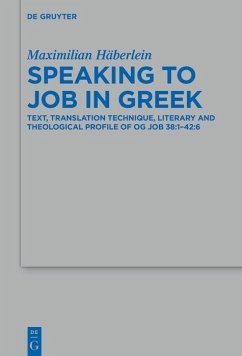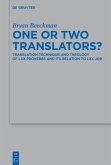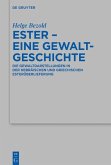This study investigates the Old Greek translation of Job regarding its text,
Vorlage, translation technique, literary contexts, and theological profile. To situate OG Job within its ancient contexts, both the strategies employed by the translators and the literary profile of the translated text have to be taken into account. Thus, an approach is employed encompassing a thick description of translational strategies; and a reading of the translated text in its own right. This framework is applied in an investigation of God's answer to Job in OG Job 38:1-42:6. The results show that the translators worked from a
Vorlage similar to, but not fully identical with MT, and produced a coherent, stylized text. The transformations undertaken, including double translations, intertextual renderings, minuses, small-scale rewritings and paraphrases, can be situated in an environment influenced by Greek educational and philological practices, but are also deeply indebted to Jewish scribal traditions. While not introducing sweeping theological changes, the translation nevertheless shows a tendency to emphasize divine sovereignty. The study thus contributes to a deeper understanding of this important witness to the book of Job an Jewish literature in the Hellenistic period.
Dieser Download kann aus rechtlichen Gründen nur mit Rechnungsadresse in A, B, BG, CY, CZ, D, DK, EW, E, FIN, F, GR, HR, H, IRL, I, LT, L, LR, M, NL, PL, P, R, S, SLO, SK ausgeliefert werden.









